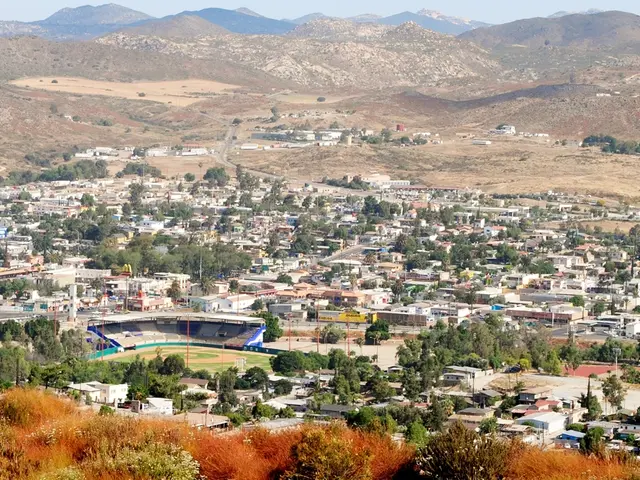The Granada Blackout Saga: An Ongoing Investigation
Suspected fault in power substation linked to widespread blackout in Spain
The Spanish government is currently probing the cause of the nationwide power outage that crippled Spain and parts of neighboring Portugal on April 28, 2021. The prevailing theory suggests a mishap at a transformer station in Granada sparked the Blackout chain reaction. Following this, failures were reported in Badajoz and Sevilla. The initial cause of the failures, leading to a 2.2-gigawatt power loss, is yet to be determined.
This event has thrown Spain's energy transition under the limelight. Minister Sara Aagesen reported the incidents to parliamentarians. In the meantime, possible causes such as a cyberattack, an imbalance between supply and demand, or insufficient network capacity have been ruled out.
Probing the Spanish Grid: What Heads are Turning
The blackout has rekindled concerns about the reliability and stability of Spain's power grid, especially with its increasing plans to phase out nuclear power by 2035 and depend more on renewable energy sources. Critics suggest that the grid's lack of "inertia" could have played a part, considering Spain's relatively low share of nuclear and fossil fuels.
Defending the energy policy, Aagesen asserts that renewable energy sources will not only lower utility bills but also nurture energy autonomy. "A more renewable energy mix," she says, "allows us to anticipate and adapt to unforeseen events quickly."
The Economic Showstopper: Estimated Costs & Losses
Aagesen conveyed an openness to consider prolonging the lifespan of nuclear power plants if operators could ensure safety and reasonable pricing for consumers, and if such a move effectively bolstered supply security.
Noteworthy Aspects:
- The European Network of Transmission System Operators for Electricity (ENTSO-E) leads the investigation into the cause of the blackout. Experts from across the continent are involved.
- The possible impact of renewable energy integration on grid stability and resilience is a topic of discussion. Adding to this, the effect of variability in renewable energy output is being assessed.
- The cybersecurity aspects of increased reliance on digital systems in managing renewable energy and grid operations are under scrutiny.
The investigation to ascertain the exact cause of the blackout is ongoing. As the consequences of renewable energy integration on power supply security remain under the microscope, we are eagerly awaiting the outcomes of both, the blackout examination and Spain's energy revolution.
[2]: European Network of Transmission System Operators for Electricity (ENTSO-E)
[4]: Initial reports suggested a fault in the European electric grid, but the exact cause remains unclear.[5]: renewables100.org, cleanix.ch, grid-australia.com.au.
- The ongoing investigation by the European Network of Transmission System Operators for Electricity (ENTSO-E) is focusing on the scientific details of the causes that led to the recent energy policy failure in Spain, which resulted in a nationwide power outage.
- The energy policy debate in Spain has increasingly focused on the role of renewable energy in the context of the industry and finance, with environmental-science experts contending that investing in renewable energy, such as solar and wind, will not only contribute to energy autonomy but also nurture a more resilient energy policy.
- Despite the support for renewable energy, concerns have risen about the environmental impact on the grid stability and resilience from critics within the business and personal-finance sectors, as Spain plans to phase out nuclear power by 2035 and rely more on renewable energy sources.
- In the real-estate sector, analysts are examining the effects of fluctuating renewable energy output and the importance of improving cybersecurity for digital systems that manage renewable energy and grid operations.
- The Spanish Minister, Sara Aagesen, has stated that extending the lifespan of nuclear power plants is an option to consider if operators can ensure safety, reasonable pricing, and supply security, thereby addressing both the ongoing investigation into the energy crisis and paving the way for a more financially sound renewable energy policy.








